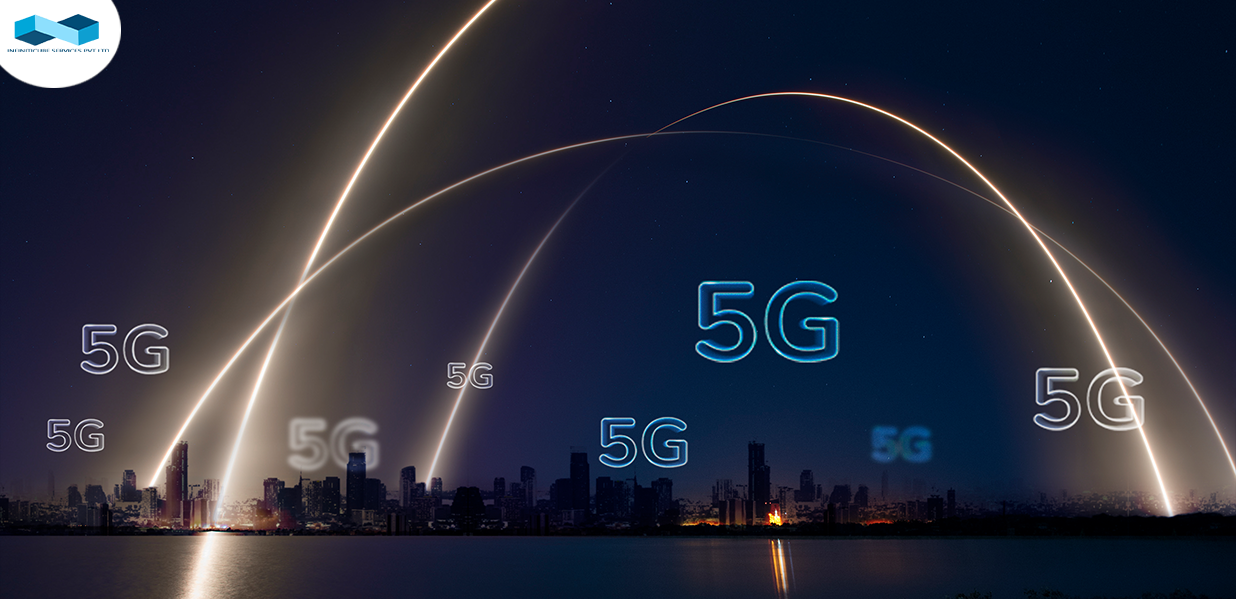5G Security Concerns: Preparing the Energy Sector
In the technological advancements, the arrival of 5G technology has sparked excitement and anticipation across various industries. However, amidst the buzz surrounding the benefits of faster speeds and enhanced connectivity, there's a pressing need to address the security implications of this groundbreaking technology. In particular, the energy sector stands at the crossroads of innovation and vulnerability, as it braces itself for the challenges posed by 5G security concerns.
From increased attack surfaces to vulnerabilities in infrastructure and data privacy issues, the advent of 5G technology brings forth a host of potential risks that energy companies must navigate.
In this blog, we'll delve into the specific security concerns associated with 5G and explore strategies for preparing the energy sector to safeguard its critical infrastructure and operations in the face of these challenges.
Join us as we unravel the complexities of 5G security concerns and chart a course towards resilience and preparedness in the energy sector.
Also Read: 12 Key Advantages of Implementing 5G in the Energy Industry
5G Security Concerns: Safeguarding the Connectivity
Transitioning into the era of 5G technology, there's a growing awareness of the security challenges it presents, particularly within the energy industry. Here's a concise overview of the key security concerns associated with 5G:
Expanded Attack Surface
- 5G's increased connectivity means a proliferation of connected devices, creating a broader attack surface for cyber threats.
- Malicious actors could exploit vulnerabilities in these devices to compromise energy infrastructure.
Vulnerabilities in Infrastructure
- The deployment of 5G infrastructure involves a complex network of base stations, small cells, and other components.
- Vulnerabilities in this infrastructure could be targeted by cyber attackers to disrupt energy services or gain unauthorized access.
Data Privacy Risks
- The massive data transmission capabilities of 5G networks raise concerns about data privacy and protection.
- Unauthorized access to sensitive information could compromise the confidentiality of critical energy industry data.
Potential for Network Compromise
- The high-speed, low-latency nature of 5G networks could facilitate rapid propagation of cyber threats.
- If not adequately secured, compromised devices or networks could lead to widespread disruptions within the energy sector.
Supply Chain Security
- The global supply chain involved in manufacturing 5G equipment introduces additional security risks.
- Malicious actors could exploit vulnerabilities in the supply chain to compromise the integrity of 5G infrastructure deployed in the energy industry.
Regulatory Compliance Challenges
- Compliance with evolving regulatory frameworks concerning data privacy and cybersecurity poses a significant challenge for energy companies adopting 5G technology.
- Ensuring compliance with these regulations is essential to mitigate legal and reputational risks.
Preparing the Energy Sector: 5G Security Strategies
In anticipation of the transformative potential of 5G technology, the energy sector must proactively address security concerns to ensure the resilience of its infrastructure and operations. Here are key strategies for preparing the energy sector with regards to 5G security concerns:
Risk Assessment and Vulnerability Management
- Conducting comprehensive risk assessments to identify potential vulnerabilities in existing systems and infrastructure.
- Implementing regular vulnerability scanning and patch management processes to address weaknesses promptly.
Security by Design
- Integrating security considerations into the design and implementation of 5G-enabled systems and devices.
- Adhering to industry best practices, including robust encryption mechanisms and secure coding practices.
Network Segmentation and Access Control
- Implementing network segmentation strategies to isolate critical infrastructure from non-essential systems.
- Enforcing strict access controls to ensure that only authorized personnel can access sensitive resources.
Security Awareness and Training
- Providing regular cybersecurity training to employees at all levels of the organization.
- Raising awareness about common threats such as phishing attacks and social engineering tactics to bolster the overall security posture.
Collaboration and Information Sharing
- Fostering collaboration within the energy sector and with cybersecurity experts to stay abreast of emerging threats.
- Establishing information-sharing partnerships and participate in industry-wide initiatives to enhance cybersecurity resilience.
Supply Chain Security
- Strengthening supply chain security measures to mitigate the risk of compromised 5G equipment.
- Conducting thorough assessments of suppliers and implement rigorous security standards throughout the supply chain.
Regulatory Compliance
- Ensuring compliance with evolving regulatory frameworks concerning data privacy and cybersecurity.
- Staying informed about regulatory requirements and incorporate them into security policies and practices.
ZTNA: The Shield Against Emerging Threats
ZTNA (Zero Trust Network Access) stands out as a significant contender in this field. Founded on the concept of "trust nothing, confirm everything," ZTNA represents a fundamental departure from conventional security frameworks, which frequently depend on inherent trust within a network. Here's how ZTNA can safeguard against 5G security threats:
Granular Access Control
- ZTNA ensures that access to resources is based on strict identity verification and authorization policies.
- By implementing granular access controls, organizations can minimize the risk of unauthorized access to sensitive data and systems.
Dynamic Perimeter
- Unlike traditional network security models, ZTNA creates a dynamic perimeter around each user and device.
- This approach is especially relevant in the 5G era, where devices are highly mobile and may connect from various locations and networks.
Encryption and Micro-Segmentation
- ZTNA employs strong encryption protocols to secure data in transit between users and resources.
- Micro-segmentation further enhances security by isolating workloads and applications, limiting the impact of potential breaches.
Continuous Monitoring and Risk Assessment
- ZTNA solutions continuously monitor user behavior and device health to detect anomalies and potential security threats.
- By conducting ongoing risk assessments, organizations can quickly identify and respond to emerging security risks in the 5G environment.
Integration with Identity and Access Management (IAM)
- ZTNA solutions seamlessly integrate with IAM systems to ensure consistent identity verification across all access points.
- This integration enhances security by enforcing least privilege access policies and preventing unauthorized access attempts.
Scalability and Flexibility
- ZTNA architectures are inherently scalable and adaptable to accommodate the dynamic nature of 5G networks.
- Whether it's supporting a growing number of devices or expanding into new geographic regions, ZTNA can scale to meet the evolving needs of the energy sector.
Conclusion
In conclusion, while the adoption of 5G technology promises unparalleled opportunities for innovation and growth in the energy sector, it also brings significant security challenges. By adopting a proactive approach to cybersecurity, leveraging advanced security measures, and fostering collaboration and information sharing, the energy sector can prepare itself to navigate the complexities of 5G security concerns effectively. With vigilance, resilience, and strategic planning, the energy sector can harness the transformative power of 5G while safeguarding critical infrastructure and operations against emerging threats.
As a leading software development company, Infiniticube is equipped to address 5G security concerns and assist the energy sector in preparing for the challenges ahead. Our team specializes in developing tailored solutions that enhance cybersecurity measures, including:
- Implementing robust security protocols to protect against potential threats in the 5G landscape.
- Developing customized software applications with built-in security features to safeguard critical infrastructure.
- Providing expert guidance and consultation on risk management strategies specific to the energy sector's needs.
Contact us to our services today to ensure your organization is well-equipped to navigate the complexities of 5G security concerns and protect your operations effectively.
 June 27, 2025
June 27, 2025
 Balbir Kumar Singh
Balbir Kumar Singh
 0
0
 June 13, 2025
June 13, 2025
 Balbir Kumar Singh
Balbir Kumar Singh
 0
0









Leave a Reply